This post may contain affiliate links, which means I’ll receive a commission if you purchase through my links, at no extra cost to you. Please read full disclosure here.
Table of Contents
In Korean, the term for CULTURE is “문화” (pronounced as “munhwa”).
Elements of Korean Culture
The concept of “문화” encompasses a wide range of elements that define the way of life and identity of the Korean people.
문화 (munhwa) includes various aspects such as language, customs, traditions, arts, music, literature, cuisine, festivals, clothing, social norms, and religious beliefs that have been developed and passed down through generations.
Historical Influences on Korean Culture
Korean culture has a rich history that dates back thousands of years and has been influenced by various factors, including Confucianism (유교), Buddhism (불교), Taoism (도교), and other indigenous beliefs. It has also been impacted by interactions with neighboring cultures and countries throughout its history.
Modern Global Impact of Korean Culture
In modern times, Korean culture has gained significant global popularity, particularly through K-pop music, Korean dramas (K-dramas), Korean cuisine, and Korean traditional art forms like 한복 hanbok (traditional clothing) and traditional dances.
Overall, Korean culture is a multifaceted and dynamic entity that reflects the values, creativity, and heritage of the Korean people.
Korean Culture Vocabulary

- 문화 (mun-hwa) – Culture
- 유교 (yu-gyo) – Confucianism
- 불교 (bul-gyo) – Buddhism
- 도교 (do-gyo) – Taoism
- 한복 (han-bok) – Hanbok (traditional clothing)









